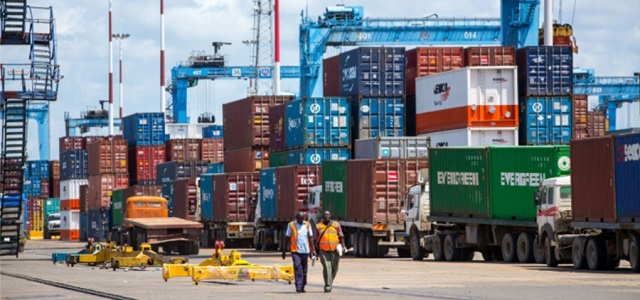
Postponing AfCFTA would be a mistake-African business leaders

But CSOs say carrying out negotiation virtually will defranchise majority of the stakeholders
Kampala, Uganda | ISAAC KHISA | African Business leaders across the continent have signed a joint letter calling for the ministers and heads of state to stick to the July 1 deadline for the free trade agreement to come into force amidst the coronavirus pandemic (COVID-19) ravaging the world.
This is in response to the rumours in a section of the international media that the African Continental Free Trade Area (AfCFTA) date of July 1 will be postponed until next year.
The signatories say that there is no legitimate reason to postpone the AfCFTA even if they understand that a staggered approach can be used given current circumstances.
One of the signatories of the letter that The Independent has seen is Paulo Gomes, former Executive Director of the World Bank and Chair of Executive committee of AfroChampions. He said certain issues in the agreement can be discussed at a later stage.
The AfroChampions network – with Thabo Mbeki and Olusegun Obasanjo, former Presidents of South Africa and Nigeria respectively as its patrons – has been mandated by the African Union to coordinate private sector discussions around the AfCFTA.
“We understand that certain parts of the AfCFTA are sensitive. The rules of origins and tariffs need time but we can start with trading of essential goods. That will send a strong message to the world that we are serious about the AfCFTA and to African businesses,” he said.
“The private sector is the biggest beneficiary of the AfCFTA and with supply chains being disrupted globally, it is even more urgent that we have a functioning system within the continent to create continental supply chains.”
In the letter, the signatories acknowledged that governments had been right to ensure that the immediate response was a health one.
But the looming crisis is economic and that the AfCFTA is an important tool to help stimulate investment and to create African value chains.
They said that there is no reason why the negotiations can’t being virtually. “With the world in lockdown, we have seen scientists come together virtually to develop a cure against the virus, which shows that negotiations and talks can take place virtually” the leaders said.
They also call for the work of the Secretariat which includes the recruitment of its staff can also continue, to ensure the Secretariat is operational as soon as lockdowns are effectively over.
Africa’s multilateral lender, Africa Export Import Bank, says implementation of AfCFTA means a single market of goods and services for 1.2 billion people with an aggregate GDP of over $2 trillion.
UNCTAD, the UN’s trade body, predicts that reducing intra-African tariffs under AfCFTA “could bring $3.6 billion in welfare gains to the continent through a boost in production and cheaper goods.”
Similarly, the UN Economic Commission for Africa thinks AfCFTA has the potential to raise intra-African trade by 15% to 25%, or US$50 billion to US$70 billion, by 2040.
But the civil society organisations across African continent that held a video conferencing session on April.28, says free trade negotiations need to be halted.
Jane Nalunga, the Executive Director at the Kampala-based Southern and Eastern Africa Trade Information and Negotiations Institute (SEATINI) said participants noted that continuing negotiations through virtual means will exclude many stakeholders especially CSOs, farmers,, MSME and informal cross boarder traders who are the actual beneficiaries of AfCFTA.
“It is therefore critical that negotiations are halted, since expediting free trade agreements for the sake of political milestones, often undermines the requisite preparatory steps needed to make such agreements bindings, effective and owned by citizens,” she said.
“This will allow for AU member states to focus their efforts and resources on mitigating against COVID-19 while giving more time for citizen’s consultation.”
She said participants also noted that while maintaining trade flows during the COVID-19 pandemic is crucial in providing access to essential food and medical items and in limiting negative impacts on jobs and poverty, it is important to ensure that policies and agreements facilitating the trade are responsive to the development needs of the most marginalised people in Africa, especially women, youth and small holder famers.
****
CLICK TO READ ONLINE MAGAZINE HERE
The post Postponing AfCFTA would be a mistake-African business leaders appeared first on The Independent Uganda:.
0 Response to "Postponing AfCFTA would be a mistake-African business leaders"
Post a Comment